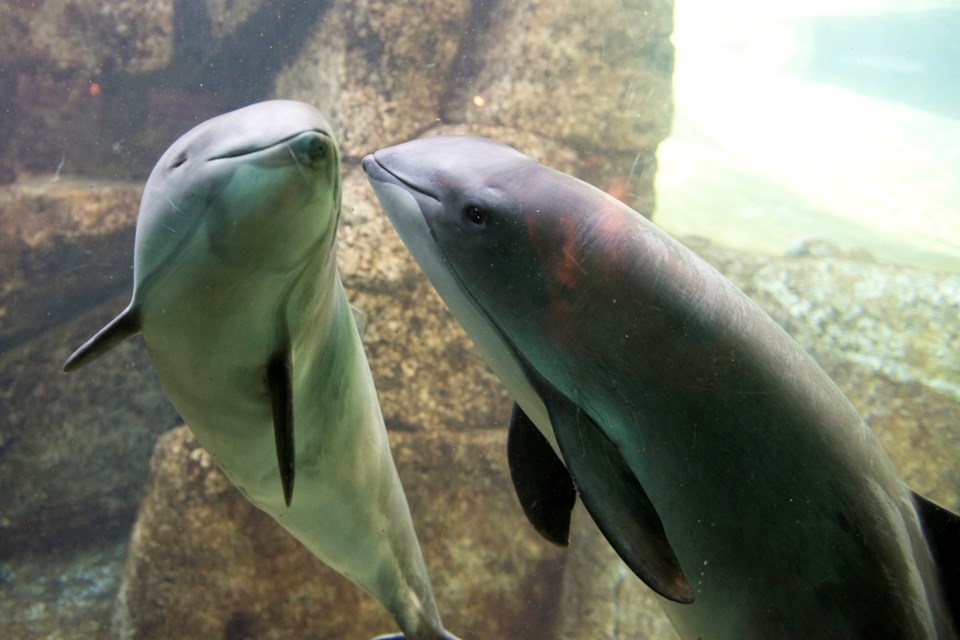The Vancouver aquarium is “deeply disappointed” and in strong disagreement with the vote taken March 9 by the park board to prohibit the import and display whales and dolphins at its marine facility in Stanley Park.
Aquarium CEO and president John Nightingale said the future of the marine research centre is in jeopardy.
“The timing and execution of the proposed amendment isn’t yet known, but a ban on displaying all cetaceans at the Vancouver aquarium will have a deep impact on the research we do and devastate our marine mammal rescue centre,” he said in a statement released March 10.
The official Twitter accout of the aquarium wrote its appreciation to messages of support and also retweeted a March 10 comment from Tyler Schwartz to the park board that asked,"Will you be euthanizing those sick animals yourselves when they wash up on our beaches? #sleepwell"
RT @schwartztyler: @ParkBoard, will you be euthanizing those sick animals yourselves when they wash up on our beaches? #sleepwell
— Vancouver Aquarium (@vanaqua) March 10, 2017
Canada’s Accredited Zoos and Aquariums also expressed dismay in a statement, saying “While we can debate the philosophical differences, what the Vancouver park board failed to understand is the consequences that their ill-informed decision will have on the preservation of cetaceans in the wild.”
Referencing the marine mammal hospital that opened recently, CAZA said the need will only grow in continuing “its role in saving sick, injured and standard marine mammals along our coastlines” and without it, could mean marine animals and cetaceans will be euthanized.
“With over 100 patients admitted each year, yesterday’s decision will prohibit some marine mammals from receiving the necessary treatment required to be rehabilitated and released back into the wild.”
The aquarium's statement also positioned the aquarium as having a history of listening to the public, which they believed included the decision to phase out cetacean exhibits in the next 12 years following a major expansion during which three to five of its beluga whales would return from marine parks across the continent.
“It was a plan that took into account the best interests of science, the animals in our care, and it was good public policy,” the statement read. “The plan included a thoughtful transition for a future without beluga whales, it would have allowed the aquarium to continue to provide a home for rescued and non-releasable animals, and it included an expanded cetacean research program with cetaceans at the aquarium and in the wild. All of that is now in jeopardy.”
It is not clear how the park board decision will affect the aquarium’s commitments to marine rescue and rehabilitation. The elected commissioners will debate the ban in greater detail once staff returns with a report by May 15.
Commissioners said they were influenced by public opposition to cetaceans in captivity, which reached a tipping point in November with the death of the only two resident beluga whales, a mother and adult calf.
The controversial topic drew a speakers’ list of 64 people, and a special public hearing spread over two nights, culminating in the park board’s decision March 9.
Nightingale said ocean and environmental conservation efforts are bolstered by the scientific study of captive animals, including whales and dolphins.
“While we debated the value of caring for and studying cetaceans, there is no debating that we are experiencing the biggest mass extinction since the age of dinosaurs,” he said. “As a not-for-profit, non-partisan, research- and conservation-based organization, we believe it is our mission to fight for nature.”
Twitter: @MHStewart



